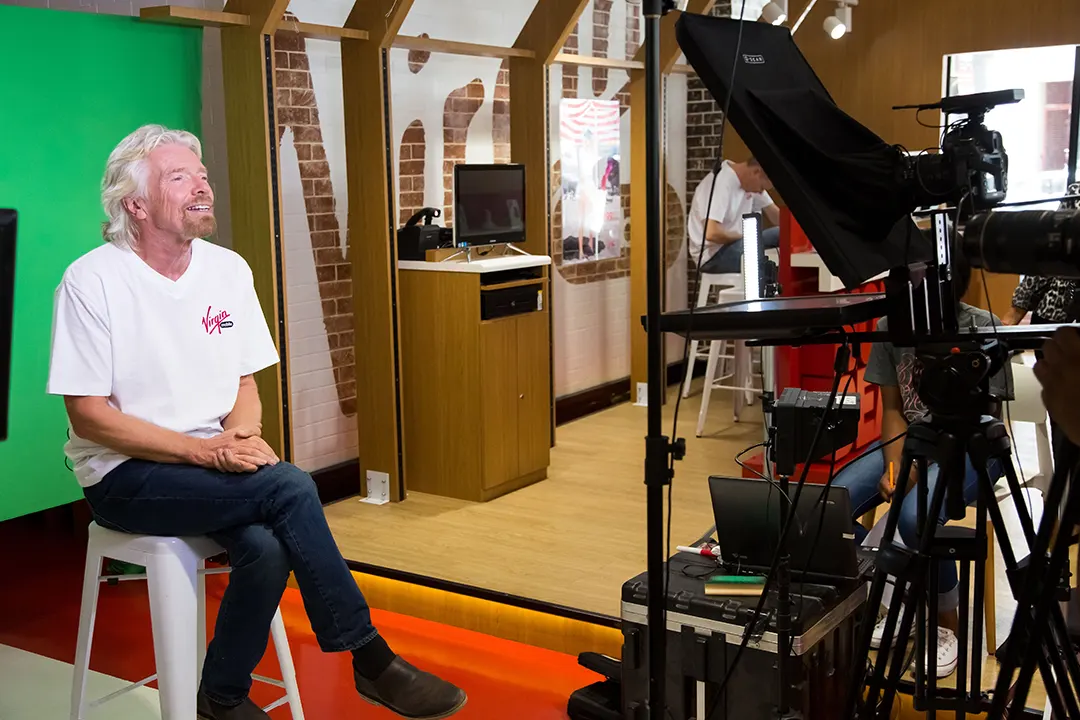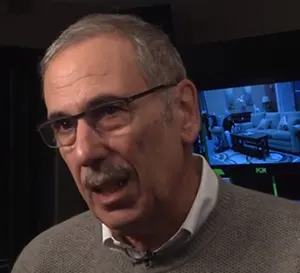Published on: April 10, 2025 at 8:03 pm
By Daniel Butcher
Despite being dyslexic, Richard Branson co-founded Virgin Group in 1970 and eventually became a billionaire, British knight, and celebrity. He has speculated that his dyslexia was actually an asset by forcing him to think in less conventional ways when brainstorming, as well as launching and running businesses.
Academy of Management Scholar Dean Shepherd of the University of Notre Dame said that research by him and his colleagues shows that more “metacognitive” entrepreneurs are, the more adaptable they are and the more likely they are to pivot, ultimately achieving better results. Metacognition is about understanding how your own brain makes sense of the world, how your learn, and how you solve problems.
“Branson, who founded the Virgin Group, has dyslexia, and in an interview he was saying it was because of that dyslexia that he had to learn how to think in a different, more deliberative way, rather than rely on intuition,” Shepherd said. “He attributes his success as an entrepreneur to his dyslexia, because he engages in metacognition, thinking about the way that we think about things—we often just make decisions based on intuition.
“We don’t think about things; we just make an automatic decision, and sometimes our intuition is right, but sometimes it can be wrong, and if we’re not thinking about it, we don’t question it,” he said. “And with dyslexia, he learned these learning skills, which made him more metacognitive, so he thought more about the way that he thinks about things.”
Research on primary schools found that children who are taught metacognitive skills perform significantly better in reading and mathematics. Those metacognitive skills can be applied to entrepreneurship and leadership as well.
“Rather than just assuming that they’ll figure it out intuitively, practitioners of metacognition ask themselves four questions: ‘What is the problem really asking? What are we really facing here? How is this similar to something that we’ve faced in the past? And how is it different from what we’ve faced in the past?’” Shepherd said. “It stops us from doing this automatic thinking, then we say, ‘What’s the best way to approach this problem? What are the different ways that we can approach this situation?’ and choose one.
“As we’re engaged in that, we stop ourselves to reflect and we say, ‘How am I doing? Am I heading in the right direction?’” he said. “When you use metacognition, you interrupt your intuition at different periods just to remind yourself to be a little bit more deliberative in the way that you think now.”
Intuition is important, Shepherd stressed. It’s an effective way to make quick decisions that is especially effective when it’s based on expertise. But problems arise for those who never question that intuitive decision-making process.
“There are some people who rarely question those assumptions based on intuition, but as we engage in metacognition, we start to question them,” Shepherd said. “And when you have dyslexia, it forces you to have that sort of thinking discipline in order to be more deliberative in the way that you think.
“That’s my that was my interpretation of Branson’s statement,” he said. “While I’m not sure if he would necessarily agree with all of that, he did say that it forced him to be more disciplined in the way he thinks.”
-
Daniel Butcher is a writer and the Managing Editor of AOM Today at the Academy of Management (AOM). Previously, he was a writer and the Finance Editor for Strategic Finance magazine and Management Accounting Quarterly, a scholarly journal, at the Institute of Management Accountants (IMA). Prior to that, he worked as a writer/editor at The Financial Times, including daily FT sister publications Ignites and FundFire, as well as Crain Communications’s InvestmentNews and Crain’s Wealth, eFinancialCareers, and Arizent’s Financial Planning, Re:Invent|Wealth, On Wall Street, Bank Investment Consultant, and Money Management Executive. He earned his bachelor’s degree from the University of Colorado Boulder and his master’s degree from New York University. You can reach him at dbutcher@aom.org or via LinkedIn.
View all posts
Up next....
Research Findings Are Not Reaching Business Leaders
Source: Shutterstock
By Nick Keppler
There are now about 400 journals for management as an academic field, producing about 12,000 published articles a year in total. However, top decision-makers rarely learn anything from them, said Academy of Management Scholar Herman Aguinis of the George Washington University School of Business.
“Many of us are concerned that the research we do is not being used to the extent that we would like, and it’s called a research-practice gap,” Aguinis said. “Also, there’s a research-policy gap,” stemming from political leaders’ lack of familiarity with research produced in the field of management.
This gap is particularly frustrating, said Aguinis, because scholars on management and organizations have produced a wealth of scientifically sound research on issues that have dominated the news in 2025, including the downsizing of the federal government, the measurement of job performance, discrimination and diversity, equity, and inclusion policies, and the implementation of AI in workplaces.
“If you want to build a bridge, you will talk to the top engineers, but management scholars are not consulted with the same regularity,” said Aguinis.
This is not entirely the fault of those who could potentially benefit from our research, Aguinis added. Academic journals are often insular and publish articles that only make small contributions to our understanding of critical organizational phenomena. Also, the compensation and reward systems motivate academics to write mainly for other academics, not managers, business leaders, and decision-makers.
“For several reasons, much of our research is not aimed at affecting practice,” Aguinis said. “If you read the typical article of, let’s say, 20 pages, you may find one or two paragraphs at the end saying ‘implications for practice.’”
The research is not lost on everyone. A small number of elite companies look to academia to improve performance. Google is well-known for hiring Ph.D. holders, not just for computer-science roles but also for management and creative jobs. Marriott is a sponsor of doctoral development programs.
These companies reap the benefit in reputation, said Aguinis, often appearing in lists such as Fortune Magazine’s “Best Companies to Work For” series.
“All of these companies, all of them, employ Ph.D.s who actually read the research, and they try to implement leadership strategies and management practices that are consistent with what research says aligns with best-practice evidence as published in scholarly journals,” he said.
-
Nick Keppler is a freelance journalist, writer, and editor. He has written extensively about psychology, healthcare, and public policy for The New York Times, The Washington Post, Slate, The Daily Beast, Vice, CityLab, Men’s Health, Mental Floss, The Financial Times, and other prominent publications (as well as a lot of obscure ones). He has also written podcast scripts. His journalistic heroes include Jon Ronson, Jon Krakauer, and Norah Vincent.
Before he went freelance, he was an editor at The Houston Press (which is now a scarcely staffed, online-only publication) and at The Fairfield County Weekly (which is defunct).
In addition to journalism, he has done a variety of writing, editing, and promotional development for businesses and universities, including the University of Pittsburgh and Carnegie Mellon University, and individuals who needed help with writing projects.
View all posts
Up next....
Why CSR Is Still Vital for Companies
Source: Shutterstock
By Nick Keppler
Any act of corporate wrongdoing—real or perceived—can be publicized worldwide instantly via the internet and social media. This has made ideas of sustainability and corporate social responsibility (CSR)—which includes organizations’ initiatives geared toward achieving environmental, ethical, philanthropic, and financial objectives—increasingly important and far-ranging, said Academy of Management Scholar Herman Aguinis of the George Washington School of Business.
“Because of information flow across the internet, now we know about sweatshops, we know about companies polluting the environment, and we know about companies that are abusing and taking advantage of farmers and not providing benefits,” he said.
Not coincidentally, measurements of CSR initiatives that make a positive societal impact have grown not just to consider the company’s adherence to laws and regulations but also its impact on globalization, technological developments, fair trade, workers’ rights, pay equity, pollution, habitat destruction, and climate change.
“The expectations have changed mostly because of pressure from the outside,” Aguinis said.
To manage an increasingly complex set of considerations related to CSR and sustainability, many companies have emphasized the three Ps, Aguinis said: people, the planet, and profit.
The “people” aspect does not only encompass employees and shareholders but also a wide span of stakeholders, including “the communities you serve, your customers, the communities around your business locations,” he said.
For example, Intel, a computer components manufacturer, holds town-hall meetings before finalizing plans to open new chip plants.
Small steps like these make operating the business easier and bolster its reputation, Aguinis said.
“The argument is that you can do good and do well at the same time, that those things go hand in hand, is replacing an older cynical argument that some economists have proposed, which is that your priority and loyalty group and number-one stakeholder is your shareholders,” he said. “‘You should just be making money for them, and anything else that you do that goes outside of that is not your mandate, not your responsibility.’”
That thinking—exemplified by American economist Milton Friedman—will not help companies stand up to increasing social pressure and could hurt their reputation, Aguinis said.
“The CSR movement has changed because customers, consumers, vendors, and partners want companies to do more to impact society positively.”
-
Nick Keppler is a freelance journalist, writer, and editor. He has written extensively about psychology, healthcare, and public policy for The New York Times, The Washington Post, Slate, The Daily Beast, Vice, CityLab, Men’s Health, Mental Floss, The Financial Times, and other prominent publications (as well as a lot of obscure ones). He has also written podcast scripts. His journalistic heroes include Jon Ronson, Jon Krakauer, and Norah Vincent.
Before he went freelance, he was an editor at The Houston Press (which is now a scarcely staffed, online-only publication) and at The Fairfield County Weekly (which is defunct).
In addition to journalism, he has done a variety of writing, editing, and promotional development for businesses and universities, including the University of Pittsburgh and Carnegie Mellon University, and individuals who needed help with writing projects.
View all posts
Up next....
Why Success Can Be the Enemy of Innovation in the Age of AI
Source: Shutterstock
By Jason Collins
A new Pew Research Center report reveals that public optimism remains low regarding the potential impact of AI in the workplace. However, refusing to work with new technologies can cause even the largest organizations to fail as this technology changes the game across many industries.
Academy of Management Scholar Wendy Smith of the University of Delaware reveals that it isn’t the small businesses that are most at risk, but rather larger organizations that choose to rely on what they know works. Smith calls this the paradox of success.
“The companies who are at the top of their market have the most to lose and therefore don’t want to take risks and thus are the most entrenched in what they already do,” Smith said. “Researchers call this the ‘paradox of success’ where successful companies are the ones that fail to adopt new technologies and innovation.”
Because smaller organizations don’t have this burden, they have nothing keeping them from trying new things and adopting new technologies such as AI and robotic process automation. History shows us that success can be an enemy of innovation. Smith draws parallels to brands such as Kodak and Polaroid, which failed to make the digital photography transition.
“BlackBerry was this amazing early force of the smartphone but could not compete when brands like Apple came into the market with updated technologies,” Smith said. “Blockbuster Video couldn’t make the transition from VHS tapes and DVDs to streaming when Netflix then took over.
“So, we see that story happen again and again and again,” she said.
If the past has taught us anything, it is that relying on past success without monitoring new technologies, tracking consumers’ preferences, and cultivating boldness in strategic planning prevents innovation.
“I think we’re going to see the same thing now,” Smith said. “And so there is wisdom in ‘Don’t throw out the baby with the bathwater.’
“It’s totally new technology, but leaders should be learning from history what it means to innovate within an existing company,” she said.
Up next....
Rethinking Management in the Age of AI
Source: Shutterstock
By Jason Collins
More than one in four workers are worried that AI will lead to job losses, according to a recent poll from the conciliation service Acas. Currently, leaders and management have a key role in shaping how employees use AI during this technological transition.
Instead of viewing AI as a potential replacement for human workers, management can be more effective by considering how people can interact with technology to boost productivity and efficiency. Academy of Management Scholar Wendy Smith of the University of Delaware said that doing so requires that senior management shift their mindsets to frame the relationship between humans and AI in the context of what works in their organization.
“One of the roles of leaders is to understand how AI and humans work together,” Smith said. “We tend to think of how technology will replace human, which is an either/or mindset.”
Instead, she urged leaders to frame technology as a complement to, not a replacement for, employees.
“Leaders can adopt a both/and approach, exploring how AI and employees work together to lead to even better outcomes,” Smith said.
Smith advised management to adopt the mindset of using AI to make their team members’ jobs easier and free up time for them to focus on strategic planning and other tasks that require higher-order thinking.
“AI works better because the person and the technology are in a relationship with one another,” Smith said. “We can do better when we ask ourselves, ‘What is this technology good for? What is my level of understanding of it? What am I good for, what do I do well, and how could I work effectively and interdependently with this technology?’”
Smith said that she believes that while AI can perform certain tasks more efficiently than humans, it ultimately comes down to collaboration. For example, the better the prompts that humans give to a generative AI platform, the better the outputs of the gen AI software. Human expertise can help evaluate and assess the quality of the AI responses.
“If AI is going to work to the best of its capabilities, it’s because I bring real and important contributions to the table,” Smith said.
For managers, the question is no longer whether to use AI but how to grow with it and encourage rank-and-file employees to do the same. Smith said this will require “growth and thoughtfulness.” Smith also underscored the advice for people to “recognize that AI and humans work better together, and to be in learning and growth mode.”
Up next....
Human-Centered Leaders Steer Through the AI Anxiety Curve
Source: Shutterstock
By Jason Collins
Established generative AI platforms such as OpenAI’s ChatGPT, Google’s Gemini (formerly Bard), Anthropic’s Claude, and Jasper (formerly Jarvis) have been competing for users and market share, and the level of competition in the space will continue to grow with the rise of non-U.S. AI startups, including Chinese company DeepSeek. The impact of this new technology in the workplace is far-reaching, and leaders need to guide their organizations’ employees through their psychological resistance with an approach that embraces innovation while acknowledging the potential positive and negatives effects on humans and our emotions.
Academy of Management Scholar Wendy Smith of the University of Delaware noted that history has shown us that when a new generation of technology is introduced, such as generative AI, we resist it psychologically. Smith explained that AI is a great example of this.
“AI introduces all kinds of uncertainty and possibilities, some exciting, others anxiety-inducing,” Smith said.
“It’s a wide range of possibilities, which includes automation of manual tasks, role changes, and job losses, and that type of uncertainty leads us to psychologically fill in the gaps with all kinds of things that we’re afraid of,” she said.
It introduces the question, “What happens with the people who had been doing the work but whose skills are no longer relevant or up to date?”
This AI anxiety curve is not a new concept. Smith cited the introduction of once-disruptive technologies that we now take for granted.
“We’ve seen that story play out in every industry,” Smith said. “For example, we’ve seen how the introduction of the personal computer overtook the mainframe, and the introduction of cloud computing overtook the personal computer.
“We’ve seen it in the past, and when it comes to technology in general is, as a result of this anxiety, there’s this curve of people adopting the anxiety,” she said.
Smith noted that this spread of emotional reactions results in a wave of people, especially in the workplace, feeling this anxiety and thus holding out for the new technology to become more established before gauging its implications, or dismissing its potential to create positive outcomes. Leaders cannot afford to ignore this anxiety. If they are to continually innovate, they need to take into account employees’ emotional responses.
“Effective innovation requires attention to, not rejection of, employees’ emotional experiences,” Smith said.
“The best leaders navigate this learning and adoption curve across the organization with empathy for their workers and clarity on the objectives for deploying the technology with a human-centered approach to leadership that also embraces innovation,” she said.
Up next....
The New Reality: Leaders Have Less Control, Need More Courage
Source: Shutterstock
By Jason Collins
For decades, the prevailing wisdom for business leaders was to stay out of politics. Neutrality was considered the safest, most responsible stance for corporate executives and board members to take. But today that approach is increasingly untenable. From the COIVID-19 pandemic to intensifying political polarization and controversy, leaders now find themselves at the center of public debates whether they choose to engage with them or not.
For leaders, silence is a statement, and political neutrality is no longer a viable option, according to Academy of Management Scholar Wendy Smith of the University of Delaware.
“It used to be that there were checks and balances in the U.S. government,” Smith said. “The market was separate from the state, or companies were separate from the government, and that is no longer the case.”
To survive and thrive in this era when economics and politics collide to sow chaos, Smith said that leaders should “talk about strategizing as a verb rather than having a strategy.” For Smith, this means considering “the conditions that we need to bring a team together to be agile and moving, even as we need to communicate out to our people some sense of security.”
Strategic decisions from supply-chain choices to remote, hybrid, or return-to-office work policies have become flashpoints in boardroom and C-suite conversations and political discourse. Leaders now must navigate complex social, economic, and political terrains, speak out on pressing issues, and align their actions with values that resonate with stakeholders—employees, shareholders, customers, and communities alike.
Companies’ leaders have had to deal with uncertainties for a long time, but Smith said many of their strategies and their organization’s systems are antiquated. According to Smith, nowadays leaders are learning that they need to “communicate to their people, optimize their processes, and cultivate openness in their conversations, but not pretend that there’s certainty of what the future will bring, because that’s just false hope.”
Smith acknowledged that leaders are faced with unique challenges in this current political landscape characterized by dissention, frustration, anger, and unpredictability, making it difficult to navigate socioeconomic volatility.
“One of the consequences of this highly polarized world is that leaders, because of the polarization, are being attacked for polarizing positions,” Smith said.
In this current era, leadership is less about having definitive answers and more about asking incisive questions, listening to a range of perspectives, evaluating various responses to difficult circumstances and controversial issues through an ethical lens, and having the courage of one’s convictions.
“We want leaders who are competent and courageous, not stepping away from that responsibility to take a stand and speak up for what’s right because it is so risky,” Smith said.
-
Daniel Butcher is a writer and the Managing Editor of AOM Today at the Academy of Management (AOM). Previously, he was a writer and the Finance Editor for Strategic Finance magazine and Management Accounting Quarterly, a scholarly journal, at the Institute of Management Accountants (IMA). Prior to that, he worked as a writer/editor at The Financial Times, including daily FT sister publications Ignites and FundFire, as well as Crain Communications’s InvestmentNews and Crain’s Wealth, eFinancialCareers, and Arizent’s Financial Planning, Re:Invent|Wealth, On Wall Street, Bank Investment Consultant, and Money Management Executive. He earned his bachelor’s degree from the University of Colorado Boulder and his master’s degree from New York University. You can reach him at dbutcher@aom.org or via LinkedIn.
View all posts
Up next....
Everyone Will Suffer in the Wake of Trump Administration’s Research Cuts
Source: Shutterstock
By Paul Friedman
This year, the Trump administration has fired many government researchers, canceled scientific and medical research grants, and targeted leading universities, including Harvard, with debilitating funding freezes. Fear of reprisal has caused many scientists, doctors, professors, and university administrators to opt for silence instead of speaking up to defend the research that is getting the ox.
Academy of Management (AOM) Scholar Peter Bamberger of Tel Aviv University says much of the research produced by him and his colleagues, including many AOM members, has a day-to-day impact on industry practitioners, including organizational leaders and managers. Cuts in federal funding for research will have a negative impact on industry, as well as researchers, colleges and universities, and other research institutions.
“What we publish in our primary journals have to be both theoretically important and have practical relevance,” Bamberger said. “It’s got to be interesting from a theoretical perspective and intellectual perspective, and it’s got to have some sort of surprising element—going against conventional wisdom—but it also has to translate that surprising finding into something that managers can do something about.
“And there are thousands of organizational consultants who read the findings published in our journals and then translate that into actual practice in organizations,” he said.
Bamberger points out that a great deal of research is specifically aimed at examining current practices by managers and their efficacy. Recently, he published a study of the managerial approach called design thinking, which focuses on understanding clients’ needs and designing innovative solutions.
“Design thinking has been around for about 10 years,” Bamberger said. “It’s an approach to create more innovative ways of boosting learning and finding innovative solutions to common problems or sometimes even really wicked problems.
“It became a fad and a lot of organizations adopted it, but no one ever bothered to actually assess whether or not it has an impact and whether this impact is any greater than other types of learning-oriented interventions, like team building,” he said.
Bamberger and research colleagues designed a field experiment to test the impact of design thinking as a team learning intervention. They compared over time what happens in terms of the efficiency and productivity of teams using different interventions.
“Is design thinking more efficacious than an alternative?” Bamberger said. “And we found out that in fact it is, and we actually demonstrate the mechanism by which it operates and why it’s more effective than other mechanisms.
“So these types of practical implications are useful to managers and to the extent that we don’t have funding necessary to do this type of research, everybody suffers,” he said.
-
Paul Friedman is a journalist who worked for 45 years at the three major news networks. He began as a writer and reporter and then became a producer of major news broadcasts, including Nightly News and the Today show at NBC, and World News Tonight with Peter Jennings at ABC. He also served as Executive VicePresident of News at ABC and CBS. Later, he taught journalism as a professor at Columbia University, New York University, and Quinnipiac University. Friedman is now semi-retired and lives with his wife in Florida.
View all posts
Up next....
Understanding Time to Manage It Better
By Daniel Butcher
Time flies when you’re having fun or in the zone at work, but it crawls when you’re in pain or doing a boring task.
Academy of Management Scholar Abbie Shipp of Texas Christian University, who coauthored an Academy of Management Annals article on that topic with Karen Jansen of North Carolina State University, said that a key element of subjective time is people’s interpretation and perception of time itself.
“Working on the expense report, even 15 minutes probably feels like forever versus 15 minutes in a crisis situation feels like a blink of an eye,” Shipp said. “There are different ways in which we perceive time itself, the units of time, and that shapes how we structure our time.
“That could be things like deadlines—say you asked me, ‘Hey, can you get this to me by Thursday?’” she said. “That may seem like a very long deadline to you, but if I have a very busy week, maybe that feels like that’s way too soon.
“It has implications for how and when we work, especially how we work with each other.”
In Shipp’s and her colleagues’ research on different elements of subjective time, they looked at all the different ways in which people have studied time, and which aspects of it scientists haven’t studied. People who take time to examine how they perceive and interpret time may be able to improve their time management.
“We found was there are many gaps, both in how researchers and practitioners look at time,” Shipp said. “We found many ways in which you can better use your time if you think about it subjectively and not just objectively.”
A sample of Shipp’s AOM research findings:
-
Daniel Butcher is a writer and the Managing Editor of AOM Today at the Academy of Management (AOM). Previously, he was a writer and the Finance Editor for Strategic Finance magazine and Management Accounting Quarterly, a scholarly journal, at the Institute of Management Accountants (IMA). Prior to that, he worked as a writer/editor at The Financial Times, including daily FT sister publications Ignites and FundFire, as well as Crain Communications’s InvestmentNews and Crain’s Wealth, eFinancialCareers, and Arizent’s Financial Planning, Re:Invent|Wealth, On Wall Street, Bank Investment Consultant, and Money Management Executive. He earned his bachelor’s degree from the University of Colorado Boulder and his master’s degree from New York University. You can reach him at dbutcher@aom.org or via LinkedIn.
View all posts
Up next....
Trade Tasks with Coworkers to Increase Meaningfulness
By Daniel Butcher
Many people want to be able to find meaning in their jobs, but fewer stop to take stock of their current roles and whether there’s anything that can be done to make them more meaningful.
Academy of Management Scholar Abbie Shipp of Texas Christian University, who coauthored an Academy of Management Annals article on that topic with Karen Jansen of North Carolina State University, said that too many of us don’t slow down enough to think about the meaning of time at work and how we spend it.
“I don’t think people often stop and reflect about, ‘Is what I’m doing at work meaningful to me?’—not what’s prioritized in my job or for somebody else, but rather, ‘Is what I’m doing in my work meaningful to me personally?’” Shipp said. “Particularly if I have some choice—‘I get to work on this project’ or ‘I get to do this volunteer opportunity’—those things are more or less meaningful to different people, so finding ways to increase those activities can shape how meaningful your job is and help you to move away from meaningless tasks.
“Maybe do reports at your low-energy time of day, but do the meaningful activities at the time when you’re most productive and can most take them in. Then your work feels more fulfilling because you’re really synchronizing those things,” she said. “You also can offshoot or delegate things that you don’t find meaningful—quite frankly, I’ve done this with colleagues—you trade or swap tasks with somebody that you work with; maybe they do find those things meaningful, and so we can do a swap of job activities.
“Maybe I join a committee because it gives me a lot of meaning and I love it but that you think is not very meaningful, and vice versa.”
A sample of Shipp’s AOM research findings:
-
Daniel Butcher is a writer and the Managing Editor of AOM Today at the Academy of Management (AOM). Previously, he was a writer and the Finance Editor for Strategic Finance magazine and Management Accounting Quarterly, a scholarly journal, at the Institute of Management Accountants (IMA). Prior to that, he worked as a writer/editor at The Financial Times, including daily FT sister publications Ignites and FundFire, as well as Crain Communications’s InvestmentNews and Crain’s Wealth, eFinancialCareers, and Arizent’s Financial Planning, Re:Invent|Wealth, On Wall Street, Bank Investment Consultant, and Money Management Executive. He earned his bachelor’s degree from the University of Colorado Boulder and his master’s degree from New York University. You can reach him at dbutcher@aom.org or via LinkedIn.
View all posts
Up next....
An Overlooked Challenge of RTO Mandates
By Daniel Butcher
It may be counterintuitive, but if leaders and managers are willing to be more flexible in how employees manage their own time, then they may get more productivity out of them. That goes against the grain as the U.S. federal government, tech giants including Amazon, Apple, Google, and Microsoft, and financial-services titans including J.P. Morgan Chase, Citigroup, Goldman Sachs, and BlackRock have all issued return-to-office (RTO) mandates.
Academy of Management Scholar Abbie Shipp of Texas Christian University, who coauthored an Academy of Management Annals article on the how we experience time with Karen Jansen of North Carolina State University, said that the subjective nature of how we perceive time and the variance of which hours people are most productive at work are factors that contribute to the “square-peg-in-a-round hole” awkwardness of requiring employees to be in the office five days every week from nine to five.
“That’s why things like the return-to-office mandates can be challenging. Even things as simple as saying, ‘We’ll do a hybrid schedule, but you’ll need to be in the office during these hours on these days of the week; here’s when we’ll be back,’” Shipp said.
“That assumes that schedule works for everyone, and it’s hard to meet individual needs while you impose collective schedules,” she said. “That doesn’t mean that we shouldn’t think about it; it means, in fact, we should think about it more–but it takes a lot of talent to do this.”
People appreciate flexibility
“First of all, we have to be aware that people need individual flexibility, so from a leadership perspective, we have to start asking employees, ‘What do you value? When do you like to work? What’s meaningful to you? What’s your background about time management?’” Shipp said.
“I don’t think a lot of leaders do that, because if they don’t know their own personal views and uses of time, they’re certainly not assuming that employees are different from them,” she said.
“My research would indicate that individuals could be very different about people’s scheduling preferences and time-management habits, yet leaders make those assumptions and never have them become explicit.”
A sample of Shipp’s AOM research findings:
-
Daniel Butcher is a writer and the Managing Editor of AOM Today at the Academy of Management (AOM). Previously, he was a writer and the Finance Editor for Strategic Finance magazine and Management Accounting Quarterly, a scholarly journal, at the Institute of Management Accountants (IMA). Prior to that, he worked as a writer/editor at The Financial Times, including daily FT sister publications Ignites and FundFire, as well as Crain Communications’s InvestmentNews and Crain’s Wealth, eFinancialCareers, and Arizent’s Financial Planning, Re:Invent|Wealth, On Wall Street, Bank Investment Consultant, and Money Management Executive. He earned his bachelor’s degree from the University of Colorado Boulder and his master’s degree from New York University. You can reach him at dbutcher@aom.org or via LinkedIn.
View all posts














